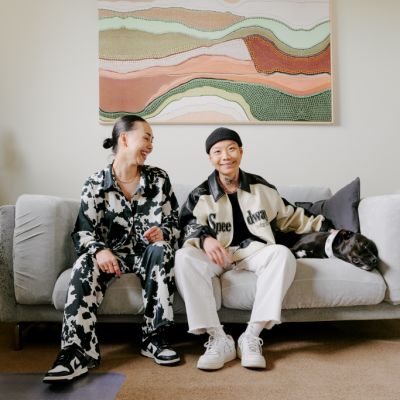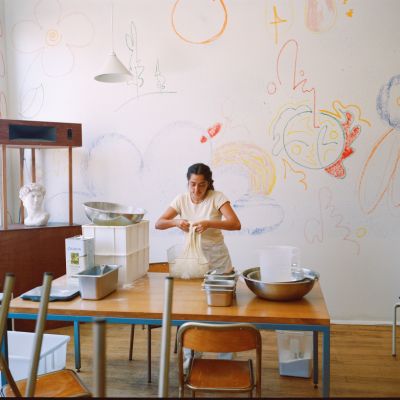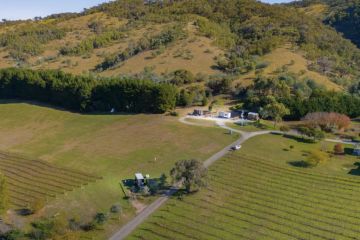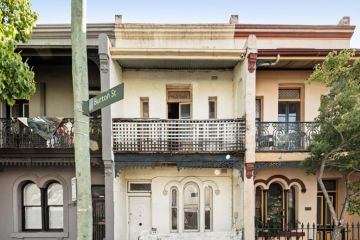Tipo 00 executive chef Andreas Papadakis's tips for making the perfect pasta dishes at home
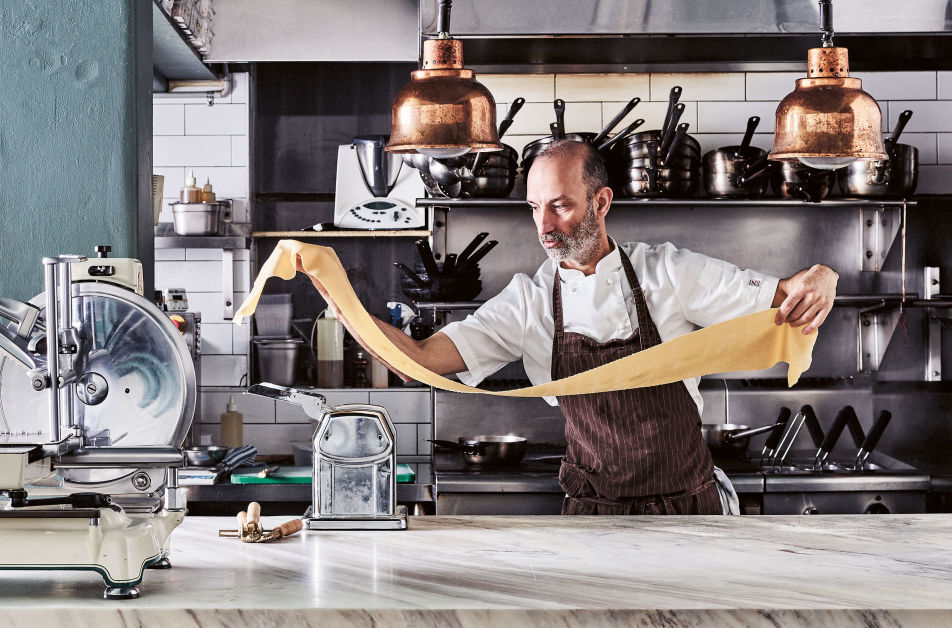
Andreas Papadakis’s devotion to pasta formed in a Mediterranean country – but probably not the one you think.
The Tipo 00 owner and executive chef was born in Athens and spent childhood summers on the island of Crete, where his family made their own wine and olive oil and reared chickens, ducks, rabbits and pigs.
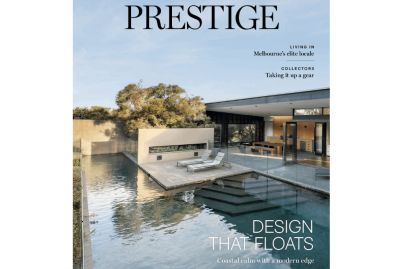

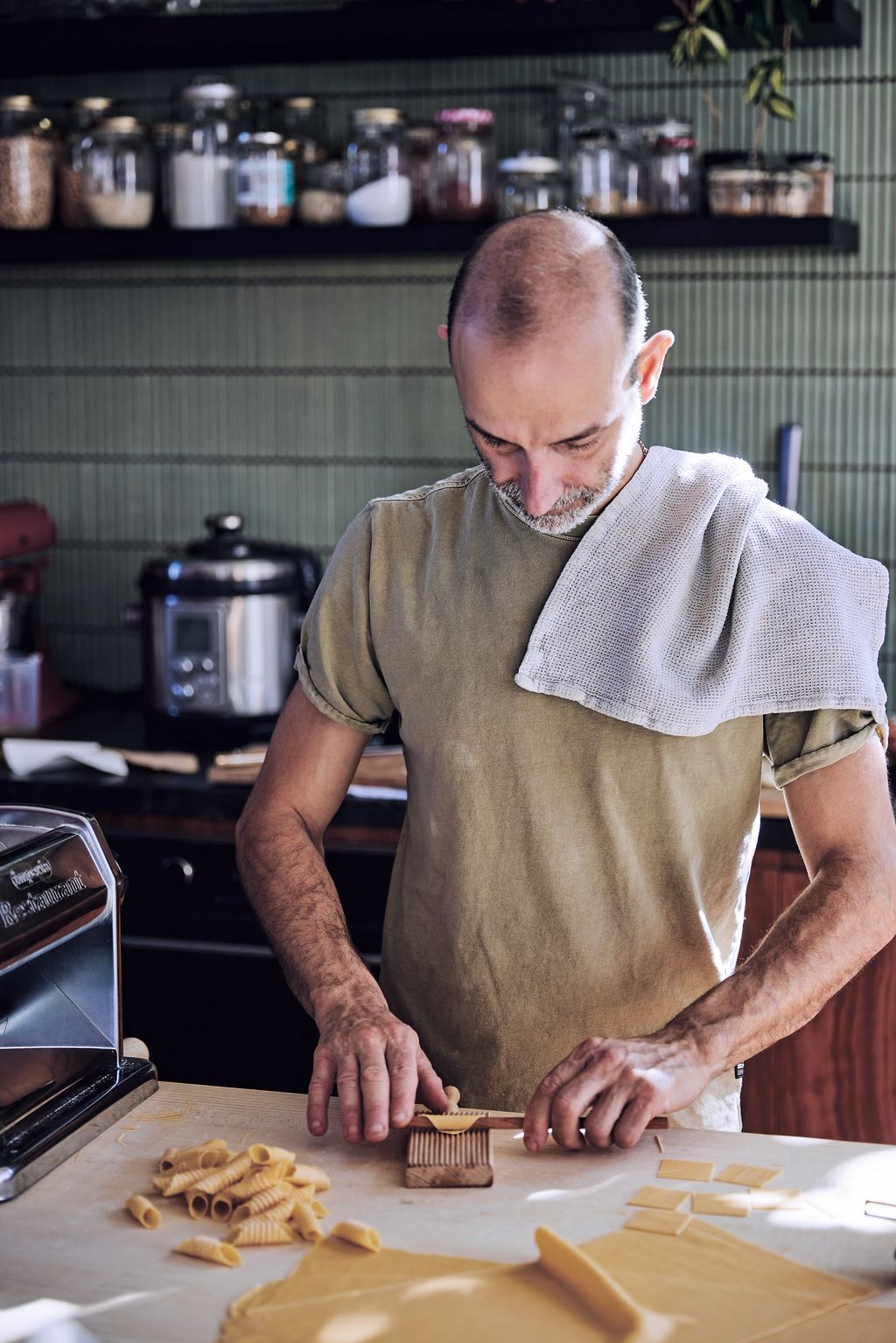
“We ate pasta four times a week,” says Papadakis, who’s escaping Melbourne’s winter on the tiny Greek island of Hydra when Broadsheet calls.
“In Crete the ingredients are really amazing,” he says. “We would do lots of seafood pasta and one cacio e pepe style with a whole corn-fed chicken. You boil it to make brodo and then you cook the pasta in the broth.
“These homegrown chickens have so much fat, which emulsifies and then you finish it with cheese and pepper. It’s still one of my favourite pastas. I’m going to Crete next week and this is on my order list.”
Papadakis’s Italian education came when he moved to Paris to work in ritzy Michelin-starred restaurants and spent his days off motorbiking across the border in Italy.
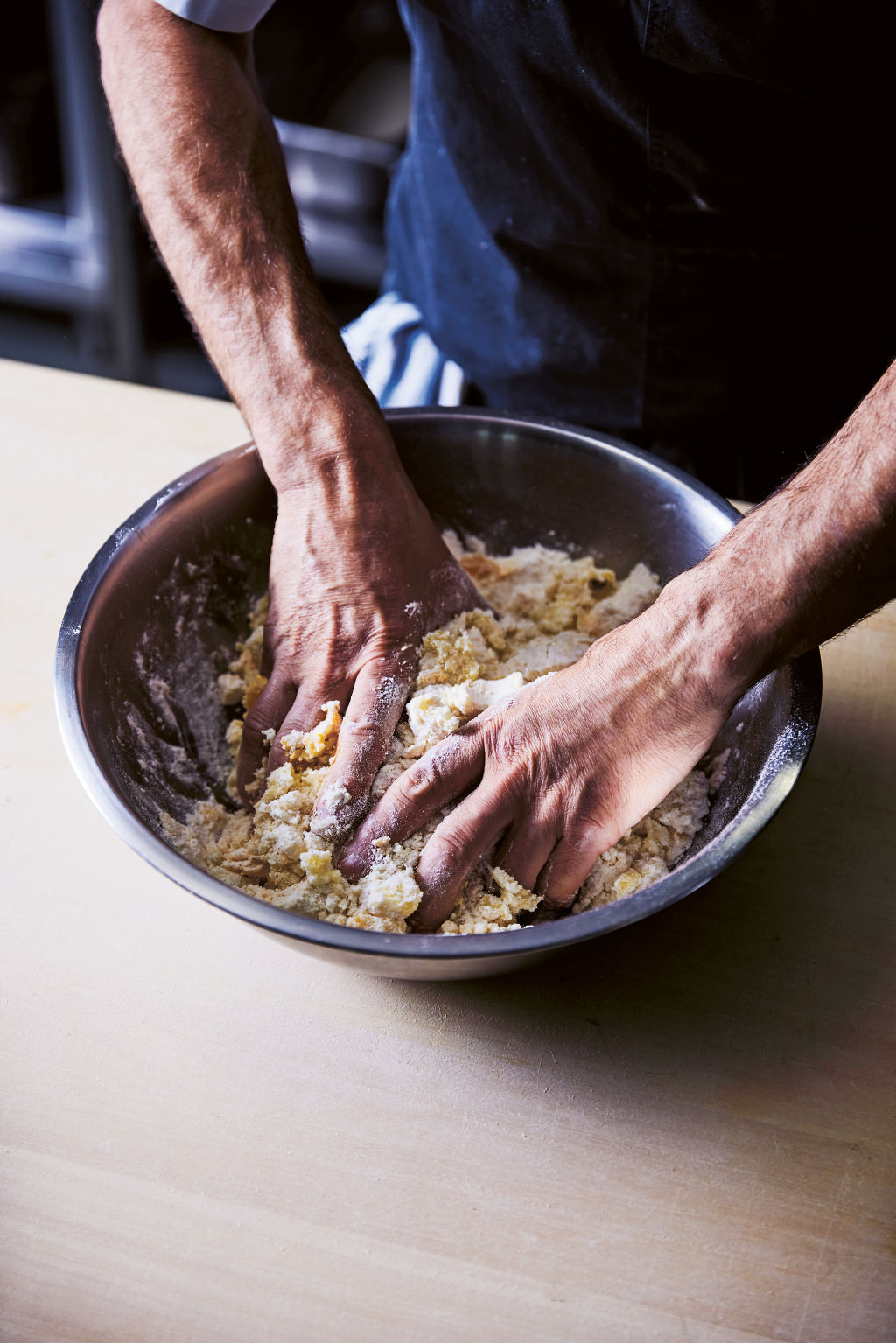
The masterful simplicity of the dishes he found there – and the cuisine’s attention to produce and provenance – reminded him of the food he grew up eating.
It became the blueprint for the kind of food he wanted to cook, eventually materialising in Melbourne’s CBD when he opened Tipo 00 with Luke Skidmore and Alberto Fava in 2014.
Ten years on, Papadakis has compiled a decade of recipes for his debut cookbook and ode to dough, Tipo 00: The Pasta Cookbook, which includes Tipo signatures like briny squid-ink tagliolini tangled with ribbons of calamari, pillowy gnocchi tossed with porcini and braised duck ragu, and that trademark “tipomisu”. Plus, homey classics like lasagne and carbonara, a quick version of Tipo’s focaccia, and other essentials for Italian cooking.
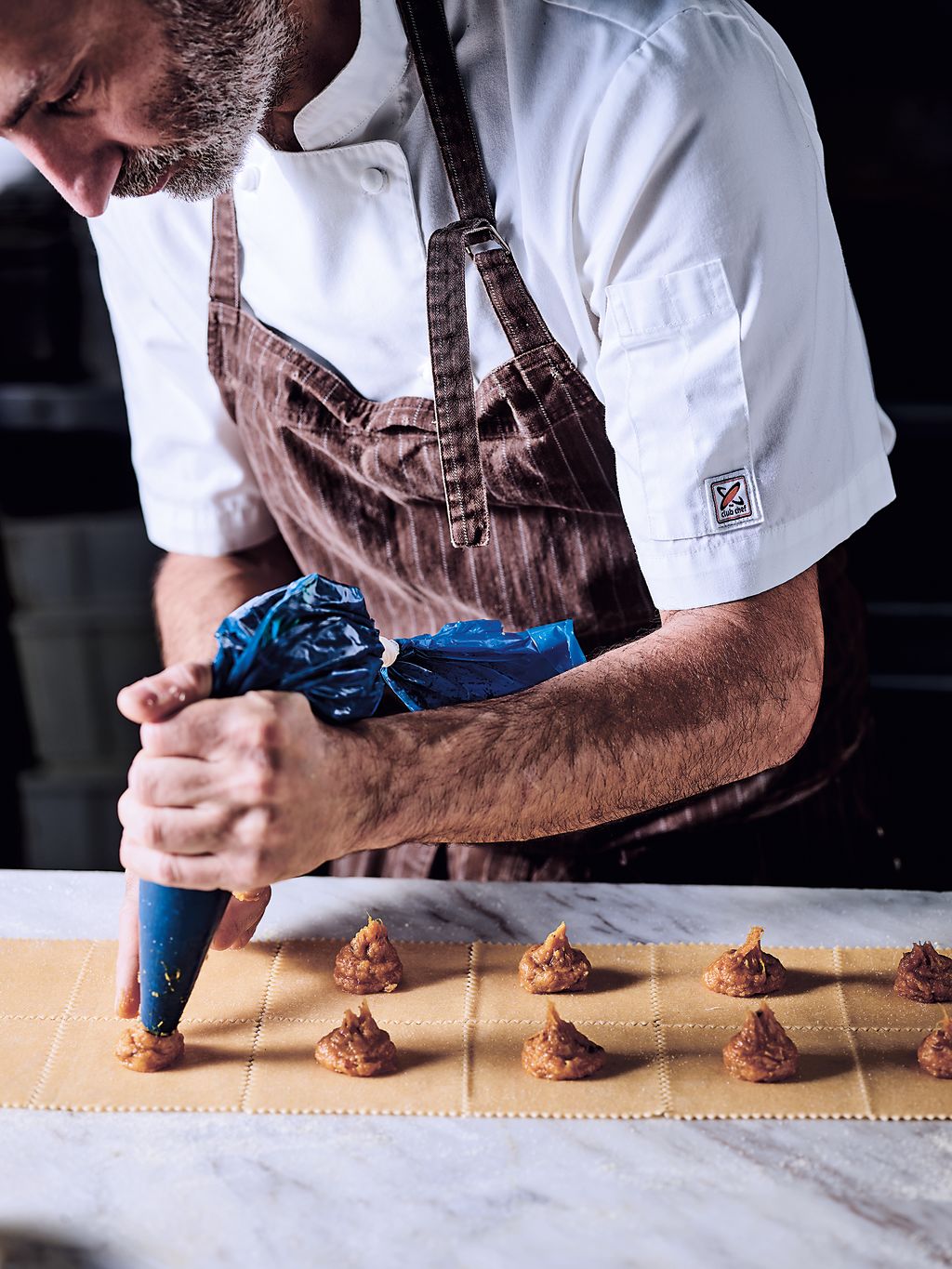
“For me, eating pasta is a unique feeling of satisfaction,” he says. “When I go on holiday, I might go a week without eating it and I miss it … In the book there’s a little chapter on midnight pasta, which I used to make religiously after work at 1am. These days, I don’t have it every night because I’ve probably already had two or three bowls of pasta while I’m working.”
His perpetually popular eatery still draws queues for its comforting bowls of fresh extruded pastas, elevated with fine-dining techniques honed over his career. In the buzzy, tightly packed room where bentwood chairs jostle for space, diners sit elbow to elbow.
“We never expected to be as busy as we are now,” he says. “The venue is tiny, it’s very challenging. A year and a half in, we were like, ‘The building is going to explode.’”
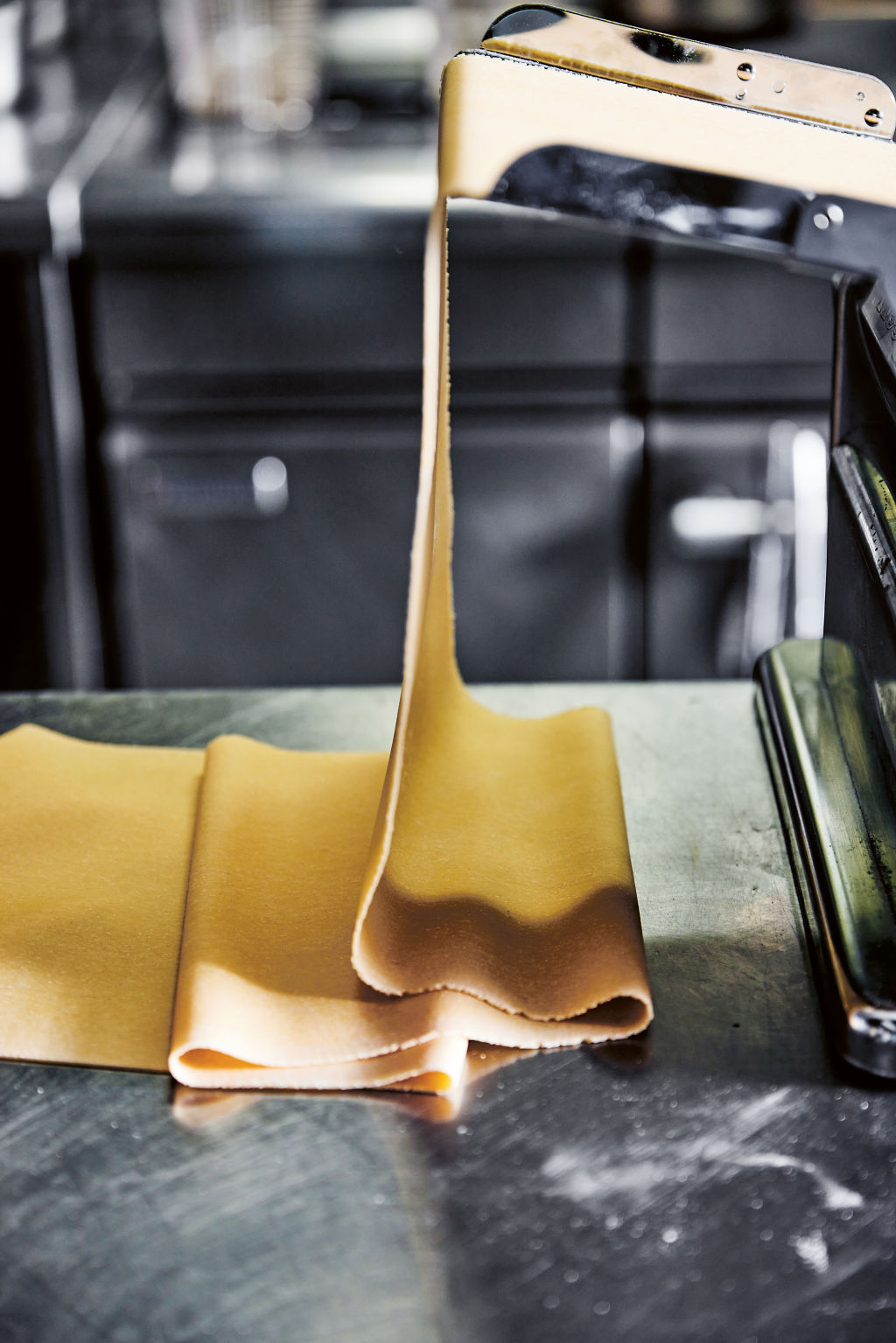
Opening contemporary sibling Osteria Ilaria next door in 2017 alleviated some of that. Then came Brunswick East pizzeria Figlia in 2022. It’s a legacy that could make his cookbook a daunting prospect for the average home cook, but Papadakis has provided recipes for every skill and schedule.
“When you buy a cookbook you’re lucky if you get one or two recipes out of it,” he says. But Papadakis has provided bonus tricks throughout to help you up your game. He also acknowledges not everyone has the time to make fresh pasta.
“You don’t always have to use the pasta dough recipes to make these meals. But I think it would be good to do it for some of them. It’s not hard, but it’s for the more ambitious, and people who want to spend a lot of time in the kitchen.”
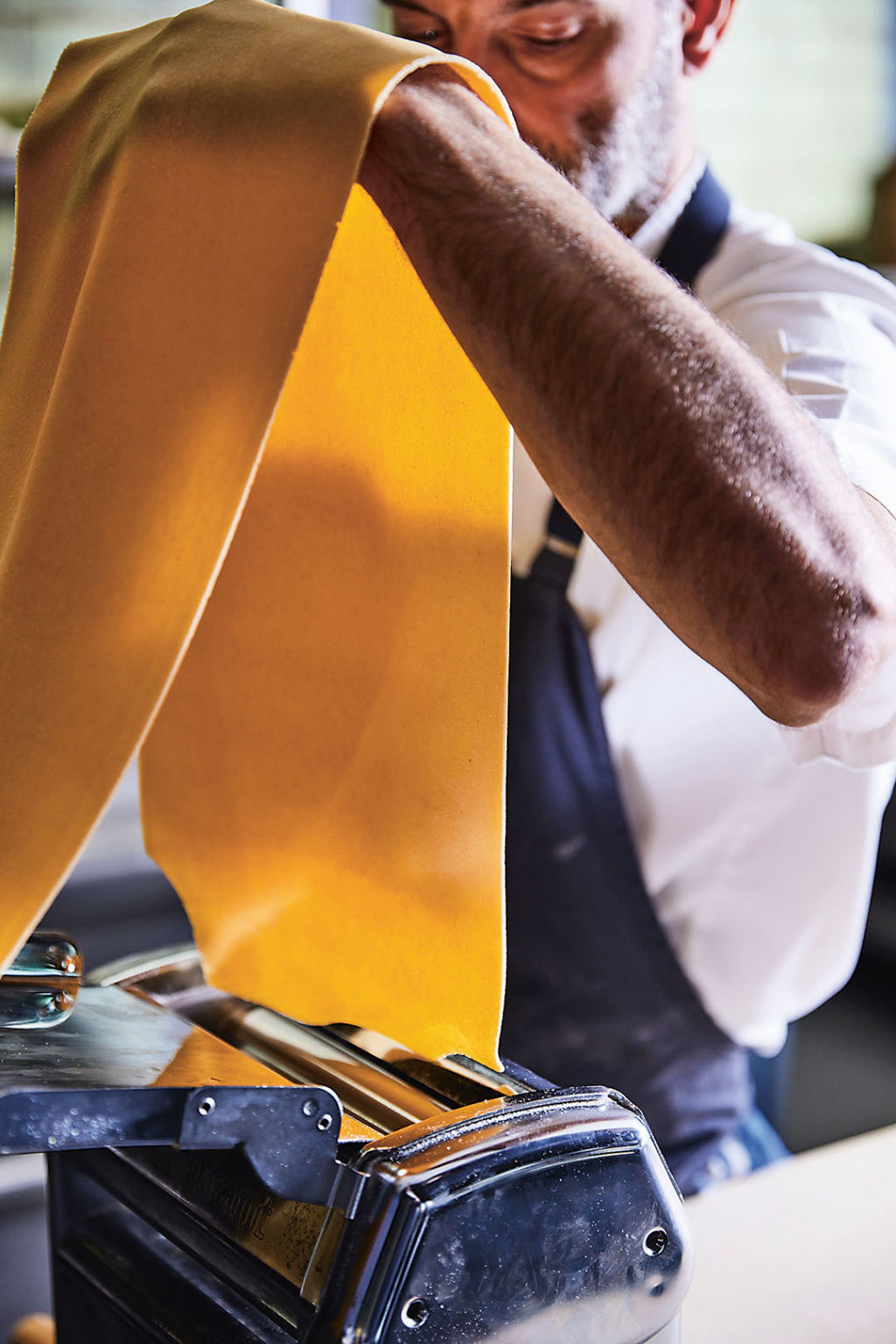
There are even times when dried pasta works best. “An Italian chef would never make carbonara with fresh pasta. The texture is so different, carbonara needs a lot of bite.”
But for those who want to roll up their sleeves, Papadakis has devised a master dough that sits somewhere between Tipo’s special recipe and more hydrated home styles.
“The fresh pasta dough we make at Tipo is very hard to roll with a small pasta roller because it’s quite dry. Most home recipes have more eggs, or are more hydrated, and it’s easier to roll by hand. But as soon as you drop it in the water, it’s overcooked.
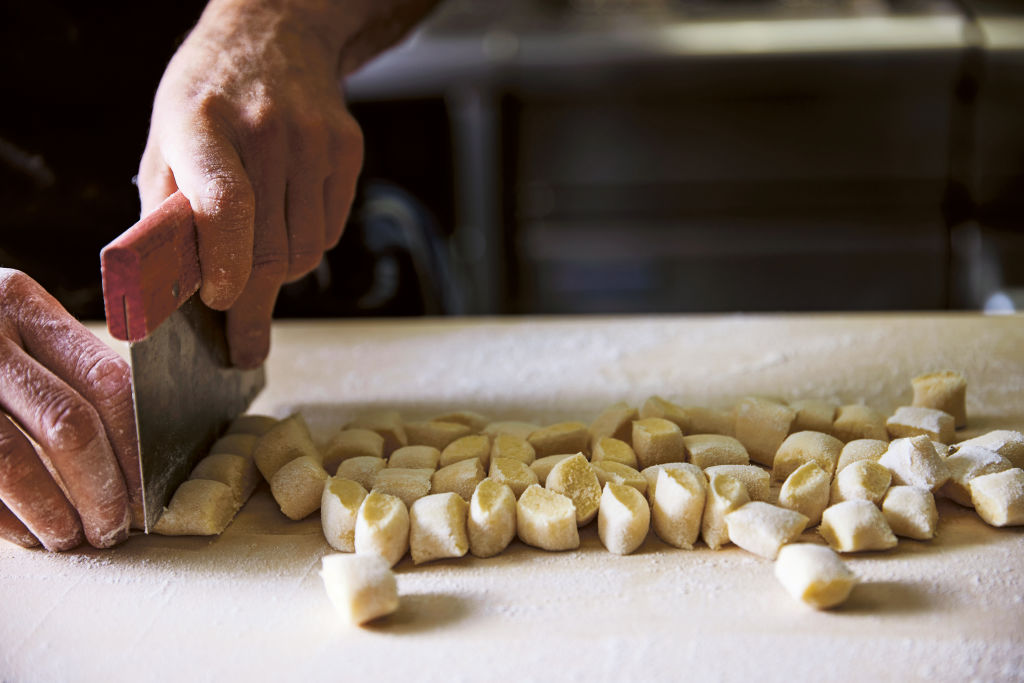
“So my biggest challenge was to adjust our recipe to something acceptable to roll at home. I’ve given similar recipes to friends over the years and they’re like, ‘Man, this almost broke my pasta machine, and it takes me twice the time to do it, but oh my god, the result is so good.’”
If you want to make it easier on yourself, Papadakis says, invest in a high-quality pasta machine. And get your own mincer while you’re at it.
“There are hundreds of bolognaise recipes around. It’s not like mine has secret ingredients, but I choose my bolognaise meat the same way I would get a piece of steak, and then I mince it at home. Or you can go to an old-school butcher, like Donati’s [in Carlton], and ask them to mince it chunky. That makes the whole difference – the texture and quality of the meat.”
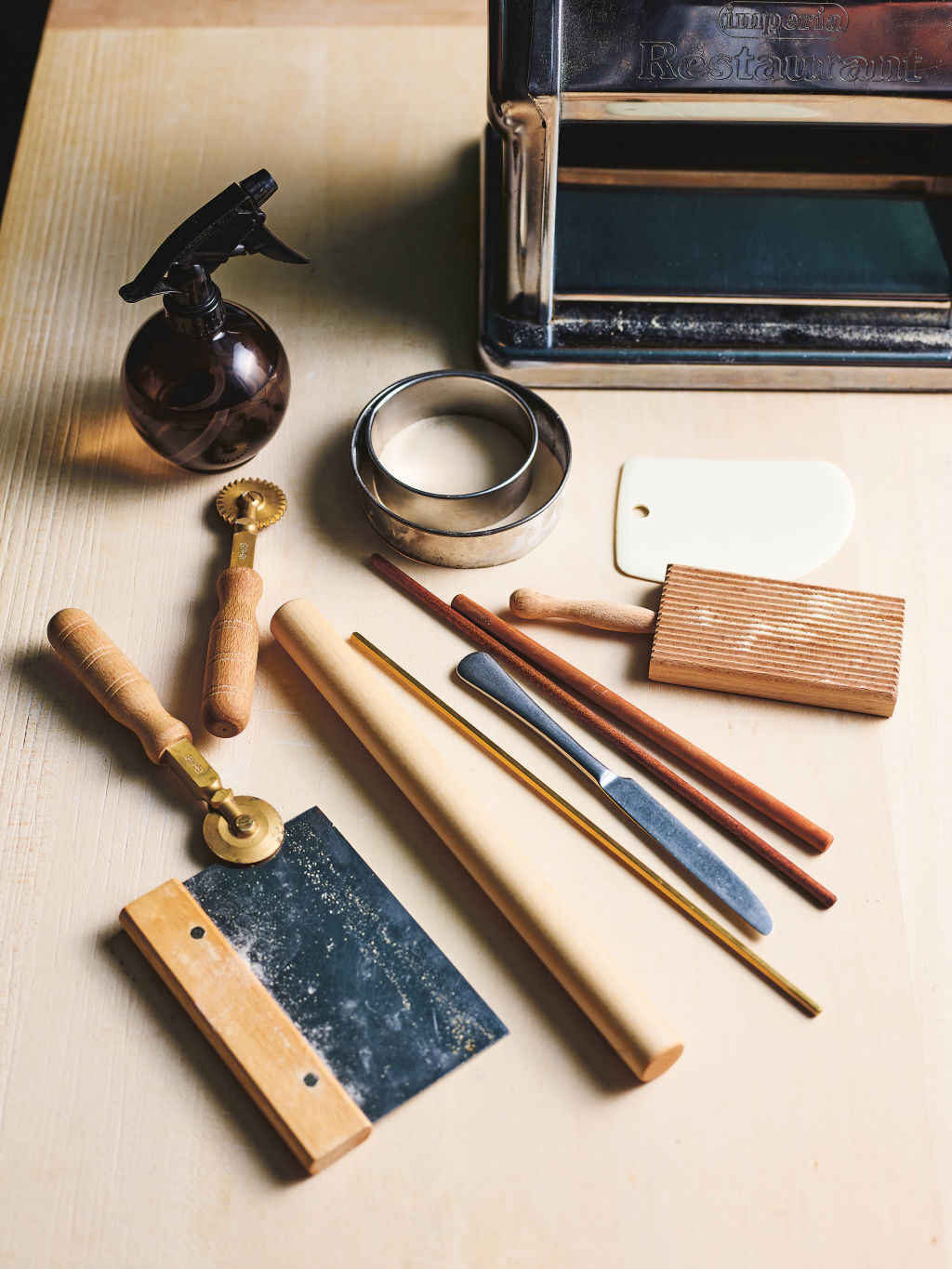
Ultimately though, do what works for you. “In Italy, there’s a huge variety of opinions – from region to region, or from neighbourhood to neighbourhood, or from chef to chef, or from nonna to nonna. Don’t try to be anybody else, just try to use some tips and do your own version.”
Tipo 00: The Pasta Cookbook is out July 30 through Murdoch Books.
This article first appeared in Domain Review, in partnership with Broadsheet.
We recommend
States
Capital Cities
Capital Cities - Rentals
Popular Areas
Allhomes
More

